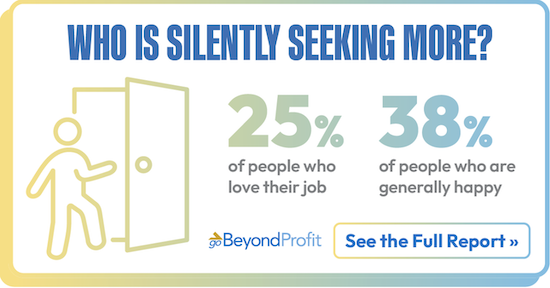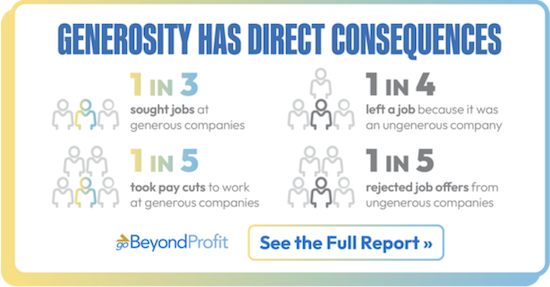The Loyalty Paradox – Getting Generosity ‘Right’ Has Real Business Consequences
Friday, September 5th, 2025
While leaders focus on external market pressures, the 2025 Business Generosity Report suggests a surprising retention challenge is quietly unfolding within their organizations.
This year’s report reveals a critical paradox: the “satisfied but still searching” employee. These individuals may tell employers they love their jobs, but data confirms they are actively looking for something more.
For business leaders trying to retain key employees it’s important to note that while 80% of Georgia employees say they are satisfied with their job, the data reveals that 37% are actually looking for something different, including the 25% who say they “absolutely love their jobs” and 38% who are “generally happy with their job.”
What motivates this “satisfied but still searching” behavior?
The data reveals that regardless of how much employees might report liking their job, they are driven to find roles with generous companies—those that go beyond profit, operate ethically, and genuinely improve lives.
This is not a minor preference; the importance of business generosity has increased dramatically. In 2019, when goBeyondProfit first began tracking business generosity, only 47% of employees considered it important. Today, that number is 97%.
Not only do employees consider it important, but the percentage of individuals who consider generosity very or extremely important in their company has jumped to 79%—a sharp rise from just 20% in 2019. This aligns with the fact that 91% of employees agree that their company’s mission and purpose make their jobs feel important.
This increasing focus on generosity, purpose, and values reflects a significant shift over the past six years and presents an excellent opportunity for retaining talent. This is not merely a preference; it has direct and significant employment consequences.
The Retention Consequences of Generosity
This year’s data shows that 66% of employees have made career decisions based on a company’s generosity. More than 1-in-3 (35%) employees have actively sought jobs at generous companies, and a surprising 1-in-5 have taken pay cuts to work for companies they perceive as generous. We found that employees who say they are strongly connected to their company’s mission and purpose are much less likely (by 32 points) to look for a new job.
What might concern executives is that 1-in-4 have left a job because a company did not display generosity, and 1-in-5 have rejected a job offer from an ungenerous company.
The message is clear: These aren’t one-time decisions. People make generosity-based career moves repeatedly. Talent gravitates to businesses that get generosity right and companies that are deemed “ungenerous” risk losing key employees and paying more for their replacements. The 2025 Business Generosity Report helps leaders understand what employees are looking for from a generous company.




